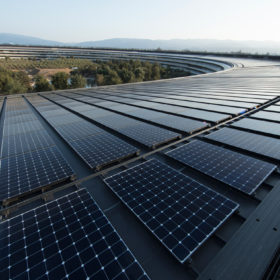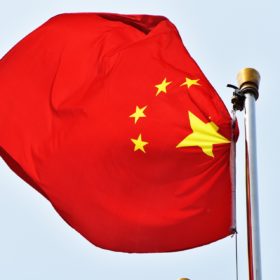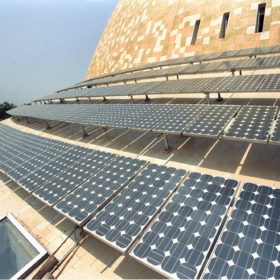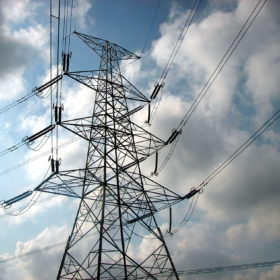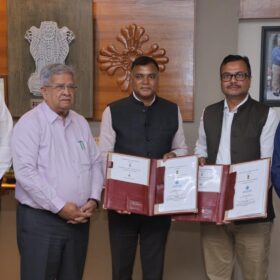Indian Railways plans to tender 4 GW solar project
The procurement will be worth an estimated Rs16,000 crore, and will stipulate the use of 1.2 GW of Indian-made equipment. The power generated will replace 4 GW of coal-fired electricity consumption used by the railways.
Hyper low costs ensure clean energy investment fell in India last year
The nation still managed to attract around $11.1 billion for renewable energy in 2018, to be the world’s fifth most attractive destination for funds, according to new figures compiled by BloombergNEF.
Indian solar is coming up on the rails of China and the US
Taiwanese market research company EnergyTrend says the 5/31 policy change in China last year had a less dramatic effect on global demand than expected and, with the Modi government introducing solar-friendly policies, India – and Japan – will close the gap on the world leaders for installed PV capacity.
Tecchren joins the race to make lithium ion batteries in India
Tecchren Batteries will establish a 200 MWh LiFePO4 battery manufacturing unit at Sri City in the state of Andhra Pradesh. Set up after an investment of Rs446 crore, the unit will produce approximately 700,000 li ion batteries per year.
UAE minister and OPEC chief says IRENA’s solar forecasts for Gulf nations will prove conservative
With the International Renewable Energy Agency’s number-crunchers predicting almost 5.4 GW of new solar across the six Gulf Cooperation Council nations today, Suhail Mohammed Faraj Al Mazroui said his nation alone would install 6-7 GW of new renewables capacity by 2024, as pv magazine editor-in-chief Jonathan Gifford reports.
China unveils an ambitious new push on grid parity solar
Beijing has outlined a series of policies mandating local and provincial authorities, state-owned banks and grid operators to pull out the stops to drive the rapid escalation of subsidy-free PV projects. The announcement has seen Chinese solar stocks on the rise.
Focus on scalability of energy storage – minister Suresh Prabhu
In his keynote address at a Make in India session at the Energy Storage India 2019 event in New Delhi, the minister for commerce and industry urged the storage sector to make products that are useful in an Indian context.
Renewable capacity in India set to jump by 50% in 2019
India is set to add renewable energy capacity of 15,860 MW in 2019, a leap of 50% on the 10,560 MW installed last year. Around 70% – 10,902 MW – of the new capacity will come from utility-scale solar projects, according to Bridge To India analysts.
NSEFI proposes renewable energy export body
The National Solar Energy Federation of India submitted the proposal to the Commerce Ministry in December and expects approval for a Renewable Energy Export Promotion Council in the next few months.
Macquarie, NTPC in race to buy IL&FS assets
India’s leading infrastructure finance company IL&FS expects up to Rs 80 billion from wind and solar asset sales.


